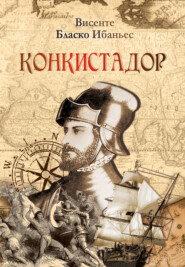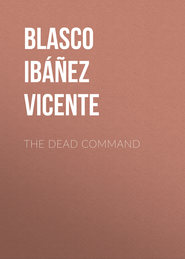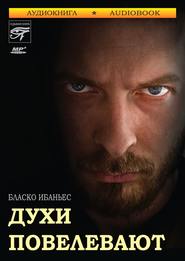По всем вопросам обращайтесь на: info@litportal.ru
(©) 2003-2024.
✖
The Shadow of the Cathedral
Настройки чтения
Размер шрифта
Высота строк
Поля
Sagrario, who had never been out of the upper cloister since her return to the paternal roof, looked at the stars with delight.
"How many stars!" she murmured dreamily.
"There are more than usual to-night," said the bell-ringer. "The summer sky seems a field of stars in which the harvest increases with the fine weather."
Gabriel smiled at the simplicity of his companions. They all wondered at God, so foreseeing and so thoughtful, who had made the moon to give light to men by night, and the stars so that the darkness should not be complete.
"Well, then," inquired Gabriel, "why is there not a moon always if it was made to give us light?"
There was a long silence. They were all thinking over Gabriel's question. The bell-ringer, being most intimate with the master, ventured to put the question about which they were all thinking. "What were the heavens, and what was there beyond the blue?"
The square was now deserted and in darkness, there was no light but the gentle shimmering of the stars scattered in space like golden dust. From the immense vault there seemed to fall a religious calm, an overwhelming majesty that stirred the souls of those simple people. The infinite seemed to bewilder them with its vast grandeur.
"You," said Gabriel, "have your eyes closed to immensity, you cannot understand it. You have been taught a wretched and rudimentary origin of the world, imagined by a few ragged and ignorant Jews in a corner of Asia, which, having been written in a book, has been accepted down to our days. This personal God, like to ourselves in His shape and passions, is an artificer of gigantic capacity, who worked six days and made everything existing. On the first day He created light, and on the fourth the sun and stars; from whence then came that light if the sun had not then been created? Is there any distinction between one and the other? It seems impossible that such absurdities should have been credited for centuries."
The listeners nodded their heads in assent; the absurdity appeared to them palpable—as it always did when Gabriel spoke.
"If you wish to penetrate the heavens," continued Luna, "you must get rid of the human conception of distance. Man measures everything by his own stature, and he conceives dimensions by the distance his eyes can reach. This Cathedral seems to us enormous because underneath its naves we seem like ants; but, nevertheless, the Cathedral seen from far is only an insignificant wart; compared with the piece of land we call Spain it is less than a grain of sand, and on the face of the earth it is a mere atom—nothing. Our sight makes us consider thirty or forty yards a dizzy height. At this moment we think we are very high because we are near the roof of the Cathedral, but compared to the infinite this height is as small as when an ant balances on the top of a pebble not knowing how to come down. Our sight is short, and we who can only measure by yards, and apprehend short distances, must make an immense effort of imagination to realise infinity. Even then it escapes us and we speak of it very often as of a thing that has no meaning. How shall I make you understand the immensity of the world? You must not believe, as our ancestors did, that the earth is flat and stationary and that the heaven is a crystal dome on which God has fastened the stars like golden nails, and in which the sun and moon move to give us light, you must understand that the earth is round, and whirls round in space."
"Yes, we do know a little about that," said the bell-ringer doubtfully, "for we were taught so at school. But, really, do you think it moves?"
"Because in your littleness as human beings, because to our microscopic mole-like sight the immense mechanism of the world is lost, do not for a moment doubt it. The earth turns. Without moving from where you are, in twenty-four hours you will have made the complete circuit with the globe. Without moving our feet we rush along at the rate of four hundred leagues an hour, a velocity that the fastest trains cannot attain. You are astonished? We rush along without knowing it. Our planet does not only turn on itself, but at the same time it turns round the sun at the rate of nearly a hundred thousand miles an hour. Every second we cover thirty thousand miles. Men have never invented a cannon ball that could fly so quickly. You move through space fixed to a projectile which whirls with dizzy speed, and, deceived by your smallness, you think you are living immovable in a dead cathedral. And this velocity is as nothing compared with others. The sun round which we turn, flies and flies through space, carrying on by its attraction the earth and the other planets. It goes through immensity, dragging us along, travelling towards the unknown, without ever striking other bodies, finding always sufficient space to move in with a rapidity which makes one giddy; and this has gone on for thousands and millions of centuries without either it or the earth who follows it in its flight ever passing twice over the same spot."
They all listened to Gabriel open-mouthed with astonishment, and their bright eyes seemed dazed and bewildered.
"It is enough to drive one mad," murmured the bell-ringer. "What then is man, Gabriel?"
"Nothing; even as this earth, which seems so large, and that we have peopled with religions, kingdoms and revelations from God, is nothing. Dreams of ants! even less! This same sun which seems so enormous compared to our globe is nothing more than an atom in immensity. What you call stars are other suns like ours, surrounded by planets like our earth, but which are invisible on account of their small size. How many are they? Man brings his optical instruments to perfection and is able to pierce further into the fields of heaven, discovering ever more and more. Those which are scarcely visible in the infinite appear much nearer when a new telescope is invented, and beyond them in the depths of space others and again others appear, and so on everlastingly. They are unaccountable. Some are worlds inhabited like ours; others were so, and revolve solitary in space, waiting for a fresh evolution of life; many are still forming; and yet all these worlds are no more than corpuscles of the luminous mist of the infinite. Space is peopled by fires that have burnt for millions, trillions and quadrillions of centuries, throwing out heat and light. The milky way is nothing but a cloud of stars that seem to us as one mass, but which in reality are so far apart that thousands of suns like ours with all their planets could revolve among them without ever coming into collision."
Gabriel remembered the travelling of sound and light. "Their velocity is insignificant compared with the distances in space. The sun, which is the nearest to us, is still so far that for a sound to go from us to it would take three millions of years. Poor human beings will never be able to travel with the rapidity of sound.
"These suns travel like ours towards the unknown with giddy flight, but they are so distant that three or four thousand years may pass without man being aware that they have moved more than a finger's breadth. The distances of infinity are maddening. The sun is a nebula of inflammatory gas, and the earth an imperceptible molecule of sand.
"The luminous ray of the Polar star requires half a century to reach our eyes; it might have disappeared forty-nine years ago, and still we should see it in space.
"And all these worlds are created, grow and die like human beings. In space there is no more rest than on earth. Some stars are extinguished, others vary, and others shine with all the power of their young life. The dead planets dissolved by fires furnish the material for new worlds; it is a perpetual renewal of forms, throughout millions and millions of centuries, that represent in their lives what the few dozen years to which we are limited, are in our own. And beyond all those incalculable distances there is space, and more space on every side, with fresh conglomerations of worlds without limit or end."
Gabriel spoke in the midst of solemn silence. The listeners closed their eyes as if such immensity stunned them. They followed in imagination Gabriel's description, but their narrowed minds wished to place a term to the infinite, and in their simplicity they imagined beyond these incalculable distances a vault of firm matter millions of leagues thick. Surely all that strange and fantastic work must have a limit. What was at the back of it? And the barrier created by their imagination fell suddenly; and again they flew through space, always infinite, with ever new worlds.
Gabriel spoke of them and of their life with absolute certainty. Spectral analysis showed the same composition in the stars as on the earth, consequently if life had arisen in our atom, most certainly it must exist in other celestial bodies, though probably in different forms; in many planets it had already ended, in many it was still to come; but surely all those millions of worlds had had, or would have, life.
Religions, wishing to explain the origin of the world, paled and trembled before the infinite. It was like the Cathedral tower, which covered with its bulk a great part of the heavens, hiding millions of worlds, but which was of insignificant size compared to the immensity it hid, less than an infinitesimal part of a molecule—nothing. It seemed very great because it was close to men, concealing immensity, but when men looked above it, getting a full grasp of the infinite, they laughed at its Lilliputian pride.
"Then," inquired timidly the old organ-blower, pointing to the Cathedral, "what is it they teach us in there?"
"Nothing," replied Gabriel.
"And what are we—men?" asked the Perrero.
"Nothing."
"And the governments, the laws, and the customs of society?" inquired the bell-ringer.
"Nothing. Nothing."
Sagrario fixed her eyes, grown larger by her earnest contemplation of the heavens, on her uncle.
"And God," she asked in a soft voice; "where is God?"
Gabriel stood up, leaning on the balustrade of the gallery; his figure stood out dark and clear against the starry space.
"We are God ourselves, and everything that surrounds us. It is life with its astonishing transformations, always apparently dying, yet always being infinitely renewed. It is this immensity that astounds us with its greatness, and that cannot be realised in our minds. It is matter that lives, animated by the force that dwells in it, with absolute unity, without separation or duality. Man is God, and the world is God also."
He was silent for a moment and then added with energy:
"But if you ask me for that personal God invented by religions, in the likeness of a man, who brought the world out of nothing, who directs our actions, who classifies souls according to their merits, and commissions Sons to descend into the world to redeem it, I say seek for Him in that immensity, see where He hides His littleness. But even if you were immortal you might spend millions of years passing from one star to another without ever finding the corner where He hides His deposed despotic majesty. This vindictive and capricious God arose in men's brains, and the brain is a human being's most recent organ, the last to develop itself. When man invented God the world had existed millions of years."
CHAPTER VIII
On the morning of Corpus the first person Gabriel saw on leaving the cloister was Don Antolin, who was looking over his tickets, placing them in line in front of him on the stone balustrade.
"This is a great day," said Luna, wishing to smooth down Silver Stick. "You are preparing for a great crowd; no doubt many strangers will come."
Don Antolin looked intently at Gabriel, evidently doubting his sincerity; but seeing that he was not laughing, he answered with a certain satisfaction.
"The feast is not beginning badly; there are a great many who wish to see our treasures. Ay, son! indeed we want it badly. You who rejoice in our troubles may be satisfied. We live in horrible straits. Our feast of Corpus is worth very little compared with former times; but all the same, what economies we have had to make in the Obreria, to provide the four ochavos[30 - : Ochavo—small Spanish brass coin, value two maravedis.] that the extra festivity will cost!"
Don Antolin remained silent for some time, still looking intently at Luna, as though some extraordinary idea had just occurred to him. At first he frowned as though he were rejecting it, but little by little his face lit up with a malicious smile.
"By the way, Gabriel," he said in a honeyed tone which contained something very aggressive, "I remember at the time of the monument in Holy Week you spoke to me of your wish to earn some money for your brother. Now you have an opportunity. It will not be much; still it will be something. Would you care to be one of those who carry the platform of the Sacrament?"
Guessing the wish of the malicious priest to annoy him, Gabriel was on the point of answering haughtily, but suddenly he was tempted by the wish to foil Silver Stick by accepting his proposal; he wished to astound him by acceding to his absurd idea; besides, he thought that this would be a sacrifice worthy of the generosity with which his brother treated him. Even though he could not assist with much money, he could show his wish to work, and the scruples of his self-love vanished before the hope of carrying home a couple of pesetas.
"You do not care about it," said the priest in mocking accents, "you are too 'green,' and your dignity would suffer too much by carrying the Lord through the streets of Toledo."
"You are mistaken. As for wishing it, I do wish it, but you must remember it is very heavy work for an invalid."
"Do not let that trouble you," said Don Antolin resolutely; "you will be at least ten inside the car, and I have chosen all strong men; you would go to complete the number, and I should recommend you to accept in order to earn a little."
"Then we will clench the business, Don Antolin; you may reckon on me, I am always ready to earn a day's wage whenever it turns up."
His great wish to get out of the Cathedral had finally decided him, his wish once more to walk through the streets of Toledo, that he had not seen during his seclusion in the cloister, and without anyone being able to take notice of him. Besides, the ironical situation tickled him extremely, that he of all men with his round religious denials should be the one to pilot the God of Catholicism through the devout crowd.
This spectacle made him smile, possibly it was a symbol; certainly Wooden Staff would greatly rejoice, he would look upon it as a small triumph for religion, that obliged His enemies to carry Him on their shoulders. But he himself would look upon it in a different way; inside the eucharistic car he would represent the doubt and denials hidden in the heart of worship, splendid in its exterior pomp, but void of faith and ideals.
"Then we are agreed, Don Antolin. I will come down shortly into the Cathedral."
They parted, and Gabriel, after quietly digesting the milk his niece brought him, went down into the Cathedral without saying a word to anyone about the work he intended carrying out; he was afraid of his brother's objections.















